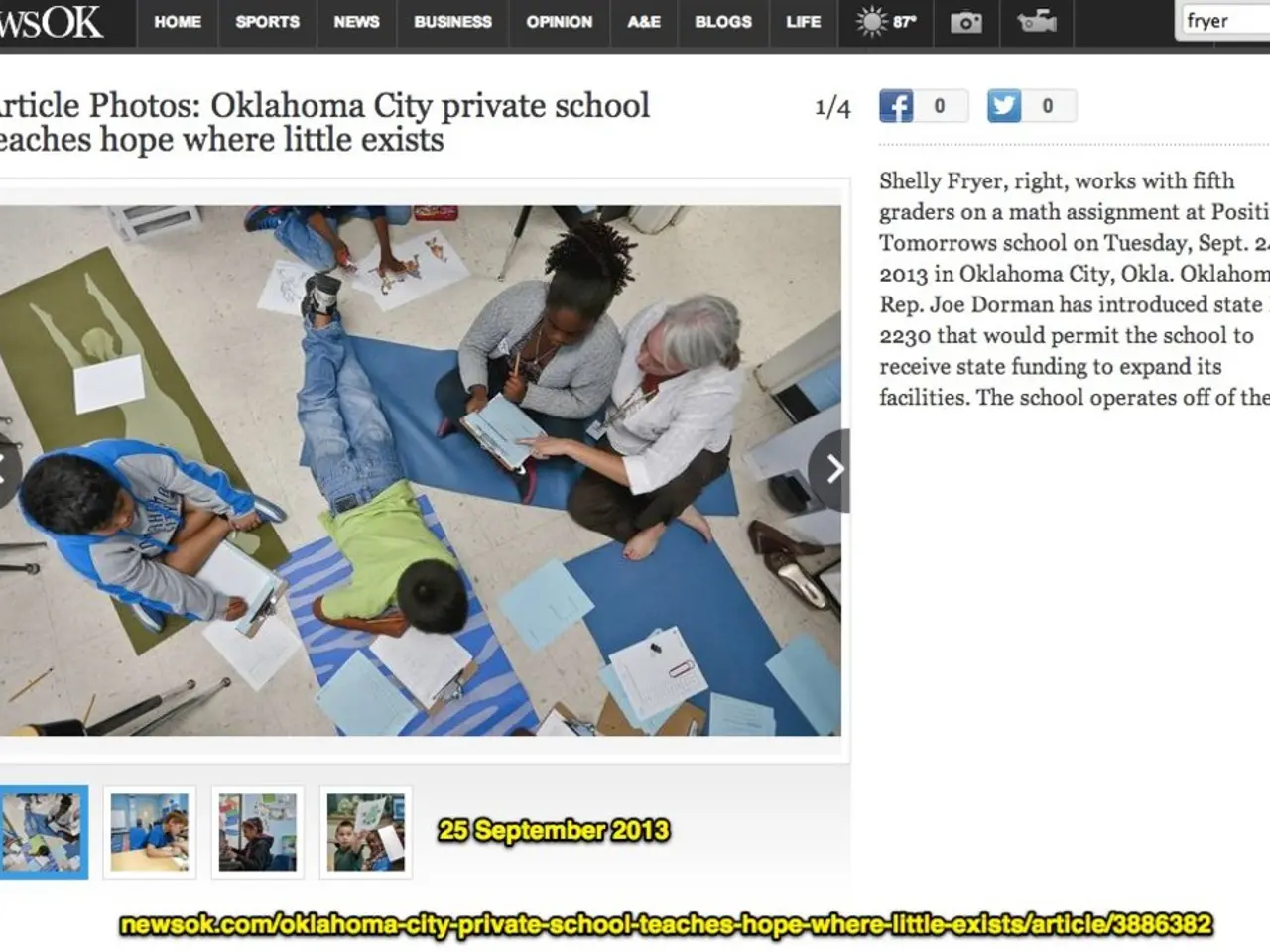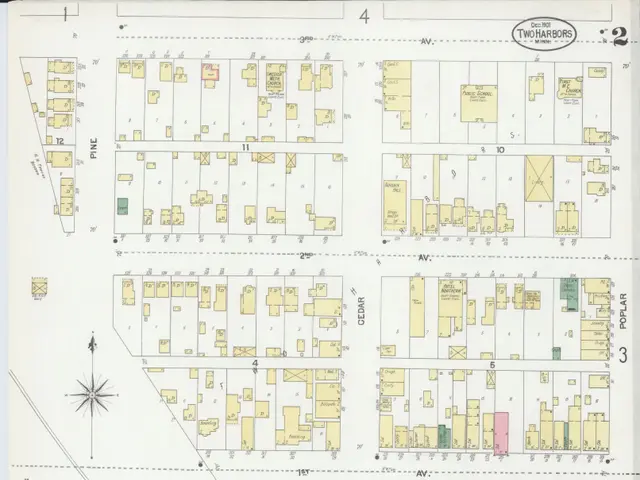Australia's proposed ban on youth usage of social media platforms: Effective or ineffective?
In recent years, the debate surrounding social media's impact on the mental health of young people has escalated, leading to proposals for bans and restrictions on platforms for under-16s. This article explores the latest developments and the mixed evidence surrounding the effectiveness of such bans.
The most recent example of a social media ban comes from Australia, where the government enacted a national ban targeting platforms such as TikTok, Facebook, Snapchat, Reddit, X, Instagram, and now YouTube, aiming to address a growing mental health crisis among youth. The move has garnered significant support, with 77% of Australians backing the ban, and 87% supporting fines for non-compliance [1]. Similar sentiments are shared in Germany, where 77% of respondents in a 2024 poll expressed support for an Australia-like social media ban [2].
However, the effectiveness of social media bans as a means to address the youth mental health crisis presents mixed evidence and considerable uncertainty. Social psychologist Jonathan Haidt and colleagues argue that the rise of social media and smartphones is contributing to an epidemic of mental illness among teenagers, partly motivating Australia's decision to enact the ban [1]. Studies cited by Haidt suggest social media use can actively increase anxiety and depression, rather than merely being correlated with these conditions [2].
Yet, empirical research measuring the mental health impact of social media restrictions or reductions is less conclusive. Several studies find little evidence that blanket bans or reduced social media use yield significant or lasting improvements in youth well-being. For example, a study where heavy Instagram users stopped using the app showed similar improvements in depression and self-esteem to a control group that continued using it, indicating other factors may be at play [2].
Beyond the question of direct causal effect, some researchers highlight potential unintended consequences of banning social media. Young people may migrate from regulated platforms to more dangerous parts of the internet lacking safety guidelines, possibly increasing exposure to harmful content like misogyny, which has been linked to negative mental health outcomes in adolescents [1][3]. Moreover, restricting social media without addressing underlying stress or providing alternative coping mechanisms may not help long term, as social media is often used to manage boredom, anxiety, and social connection [2].
Broadening the perspective, broader interventions targeting the quality of offline environments (such as schools) seem necessary to truly engage youth and improve well-being, as phone or social media bans alone do not address root causes of disengagement or mental health problems [4].
In Bolivia, students, families, and teachers are collaborating to identify and respond to risks such as disinformation and hate speech on the internet. Participants in the Bolivian Ideathon recommended the production of short informative videos, musical or theatrical compositions, and debates on misinformation as ways to counter online risks [5].
Concerns have been raised about the accuracy of age assurance technologies and potential data privacy breaches associated with social media bans. For instance, the enforcement of the ban will not involve compulsion of users to provide government-issued ID or digital identification, but will instead rely on alternative age assurance methods [2].
In conclusion, while social media use appears to contribute to some mental health challenges among teens, research to date does not strongly support that a blanket ban for those under 16 will be an effective, standalone solution for the mental health crisis. The approach may require complementary measures addressing the social and psychological needs of adolescents to be effective [1][2][4].
- The government of Australia has implemented a national ban on social media platforms such as TikTok, Facebook, Instagram, and YouTube, aiming to address a growing mental health crisis among youth, receiving support from 77% of Australians and 87% supporting fines for non-compliance.
- In Germany, 77% of respondents in a 2024 poll support an Australia-like social media ban, mirroring the sentiment in Australia.
- Social psychologist Jonathan Haidt and colleagues argue that the rise of social media and smartphones is contributing to an epidemic of mental illness among teenagers, partly motivating Australia's decision to enact the ban.
- However, research measuring the mental health impact of social media restrictions or reductions is less conclusive, with some studies finding little evidence that blanket bans yield significant improvements in youth well-being.
- In broader interventions, addressing the quality of offline environments, such as schools, seems necessary to improve youth well-being, as phone or social media bans alone do not address root causes of disengagement or mental health problems.





